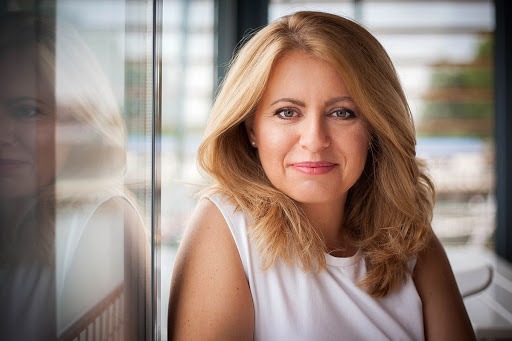Finally, after more than 50 speakers, the UN General Assembly saw a woman take the virtual microphone on Wednesday.
There were no female speakers on the first day of the Assembly on the official schedule, with the second day finally welcoming a woman: President Zuzana Caputova of Slovakia, coming in as the 52nd speaker, according to The New York Times. One of 11 women scheduled to speak at this year’s Assembly, of 196 speakers in total.
And when she sat down to speak, President Caputova delivered a stunning speech that called for global cooperation.
She spoke about climate change, as well as the need for “globalisation of compassion”. She warned against a competition for a global vaccine. She urged world leaders to share information, to work together with scientists and to provide a vaccine to “anyone on the planet”.
“One of the most important lessons that we learned during the first months of COVID-19 is that ordinary people can achieve extraordinary things if they are led by solidarity and compassion,” she said.
“People around the world understood that responsible behaviour can save lives, even if it meant limitation of their own comfort. That they need to take their share of responsibility in protecting themselves and the others. I would even dare to say that this pandemic crisis brought the best out of us.
“It is our responsibility as leaders to apply the same among nations. That’s why we need true globalisation of compassion.”
She said that only “responsible leadership” can manage this crisis, and that political leaders must make decisions based on facts and knowledge — not on selfish interests.
“The opposite — incompetence, disinformation or populism — has fatal consequences.”
Responsible leadership also requires a willingness to see the common global interest, she said, including to preserve the best of existing organisations and regimes of cooperation — they are not always perfect, but instead of resenting or defunding them, leaders should work together to find ways to improve them.
President Caputova emphasised the need for trust as a means to do what’s right for people, as well as a free and independent media. She also warned against using any crisis as an excuse for attacking liberties and human rights — limitations must be proportionate, time-limited and legal. On this note, she highlighted the current crisis in Belarus, where just this week hundreds of women have been detained after protesting the leadership of President Alexander Lukashenko
Finally, she shared the “Remarkable lesson from COVID-19”: that change is possible, and quickly. That’s particularly important when it comes to addressing climate change, “which is undoubtedly the greatest threat to our common future.”
“We have been able to organise ourselves and create over 20 parallel teams worldwide to develop anti-COVID vaccine, because we lacked the so much needed knowledge. In climate change, we all know what to do,” she said.
“We just need to show a genuine will and act together, as one. To make it a real priority. And to let the science, innovations, but also solidarity and compassion lead the way.”
Zuzana Caputova became Slovakia’s first female president in March 2019. The presidency is largely described as a “Ceremonial role”, with Slovakia also having a prime minister. Caputova framed her election for president last year as a struggle “between good and evil” according to the BBC. She rose to national prominence as a lawyer, leading a long-running case against illegal landfill. As part of the Progressive Slovakia Party, she holds progressive views, including in support of LGBTQ+ rights in a country where same-sex marriage is not yet legal.
The UN General Assembly is an opportunity for the UN’s 193 member recognised countries to share views on current global priorities — and also sometimes make a point about current rivalries or other issues. Just eight percent of UN recognised nations are led by women.


